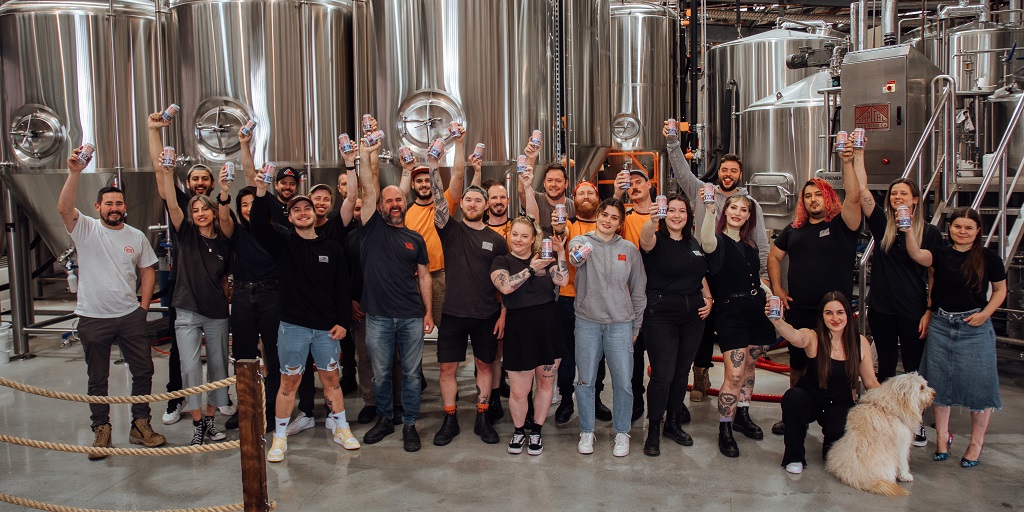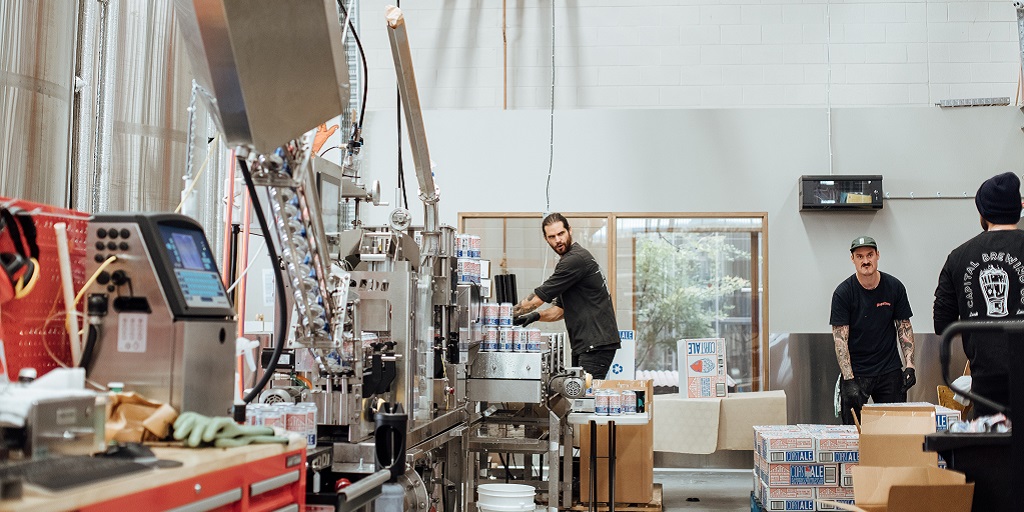
Carbon neutral Capital launches industry template

Newly-announced carbon neutral brewery Capital Brewing Co. has also launched a template for brewers to allow them to calculate their own carbon emissions.
Canberra-based Capital worked with Climate Active and is now fully carbon neutral certified within both its organisation and for its products.
The news comes as more and more breweries look towards sustainability, not only to differentiate themselves in a competitive market, but because brewing is a resource-intensive industry and many brewers feel a responsibility to help further the development of sustainable practices.
Co-founder Laurence Kain explained that the certification was a natural continuation of ongoing practices at the brewery.
“We had a number of reduction strategies across the business, all manner of different things from composting onwards, but whatever we did, there was an unavoidable remaining carbon emission that you can’t reduce any further from your baseline operations. So, how do you do the right thing to deal with that?
“We looked at a number of different options, like 1% for the Planet and carbon offsetting. They’re not dissimilar in what they end up costing, but with carbon offsetting, there is a properly calculated idea of where emissions are coming from.
“And the offsetting cost goes towards renewable and biodiversity projects.”
Capital Brewing Co. engaged Pangolin Associates in 2021 to conduct a life cycle assessment of its entire operations, covering direct and indirect as well as upstream and downstream activities, from raw materials such as aluminium, grain and hops to energy and water use, waste, freight, staff commuting and even office supplies.
As part of the Climate Active certification process, the results were independently audited and verified, and Capital bought carbon credits with the Orana Natural Capital Project to offset its emissions for the year. Orana Park is located in Bendigo, Victoria and is one of the closest projects to Capital’s homebase, focusing on regenerative farming and the recovery of threatened species.
“There’s no doubt there’s a lot of data crunching, it wasn’t overly difficult, but it was just getting started and knowing where to start and that’s what paralyses most people – How do we do it? How much is it going to cost us?” explained Kain.
“Because there’s no one that had done it properly before us, we had no idea how much it would cost. We could have got three quarters of the way through and realised it was prohibitively expensive.
“So just overcoming that inertia [to start the project], and finding Pangolin Associates who we worked with in developing the template and calculating our emissions, they are experts in their field of knowledge, which is calculating carbon and energy usage, was key.”
It was also important for Capital to go for the 100 per cent carbon neutral goal with Climate Active, a certifier which appealed because of its transparent processes.
“Climate Active is really transparent, they all have to have a public disclosure statement on their website, it’s really transparent to where your business sits,” Kain explained.
“There are one or two others that are more opaque, where that level of granular detail isn’t available. We wanted to avoid not giving everyone the information available. We owe that to our consumers.”
However, Capital acknowledged that even being 100 per cent carbon neutral isn’t ideal.
“Carbon offsetting isn’t the end solution, really, the best option is reduction. But people will still consume beer, this isn’t a silver bullet and you can’t reduce everything, but it’s the best thing we can do.”
As other breweries have found out, the challenges of going carbon neutral are not insurmountable, but Capital has also launched a template to help breweries learn from its own journey to carbon neutral.

Industry carbon emissions template
In partnership with Pangolin Associates and Climate Active, the template will allow other breweries to calculate their own carbon emissions.
Pangolin has already identified the brewery processes and operations through its experiences with Capital, so the template will streamline the process and mean there is reduced administrative costs for brewers interested in going carbon neutral, Kain explained.
“We were obviously the first brewery to be fully certified under Climate Active, covering products not just corporate operations. And it’s exciting for us and Climate Active to be able to interact with 600+ breweries and create an easy pathway to take action if they want to.
“This template is reducing accounting costs and creating a pathway for people to not have to hunt around for the right people for the job.
Capital’s community engagement manager Dan Watters explained that it will make the process of calculating emissions much easier on breweries.
“Pangolin have figured out all of the emissions multipliers for different aspects of a brewing company, now all you need to do is rock up to Pangolin with your data about how much aluminium, packaging, ingredients you use, how far people have travelled to work and so on, and then punch in your figures and it will spit out a bunch of figures to help you identify where your emissions are and where you might need to think about offsetting,” he said.
“We’ve purchased carbon credits through a third party – Orana- and I would love to see a carbon offset project born as a result of a bunch of breweries working together.”
There are also other areas of the industry working towards this, such as New Belgium’s carbon neutral toolkit in the US, and the IBA’s sustainability toolkit which launched last year in collaboration with Green Industries South Australia (GISA) and 2XE.
The Sustainability Benchmark Tool converts resource use data into performance metrics and Capital explained that its new template was complementary to this resource.
“It captures your usage, but does not calculate your carbon footprint, but you do need to measure it first before it can be worked out. In that respect, they are complementary,” explained Watters.
“The template and emissions calculations will be offered via Pangolin, as you still need a bit of support from there and you need the independent audit as well, all of your data and calculations need to be independently audited.
“Pangolin aren’t free, but it will be a lot cheaper for everyone following in our footsteps. We’ve already done all that work to figure out those emissions factors, so you won’t be paying for that from the ground up.”
Capital said that while it was of growing interest to consumers for brands to be sustainable, there was a bigger picture.
“People have seen the events that have happened with bushfires, floods, this kind of stuff happening, they are becoming more aware and are looking for greener alternatives,” suggested Watters.
“We’re at the beginning of that, and soon it won’t be optional, it will be mandatory, so why not do it early?
“For me, it’s being able to give our customers the confidence that they can drink an ice cold beer with the knowledge that they’re not warming the planet.
“It’s about saying to people who want to buy our beer that we take this seriously and they can have absolute confidence that what we’ve done is correct and accurate, independently audited and verified and certified.
“It adds legitimacy to our ethos of making good natured brews, we’re not just talking the talk, we’re walking the walk and we have proof of that.”



